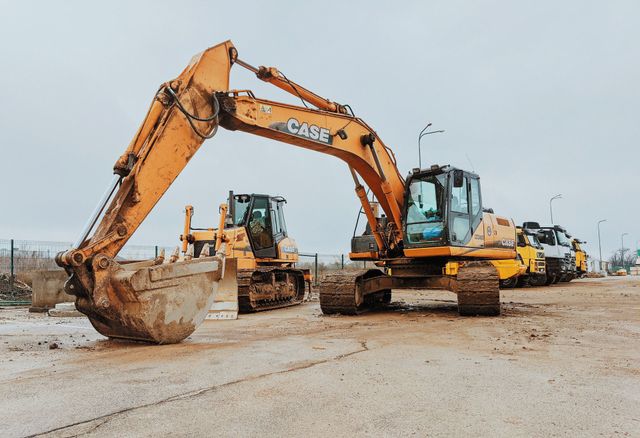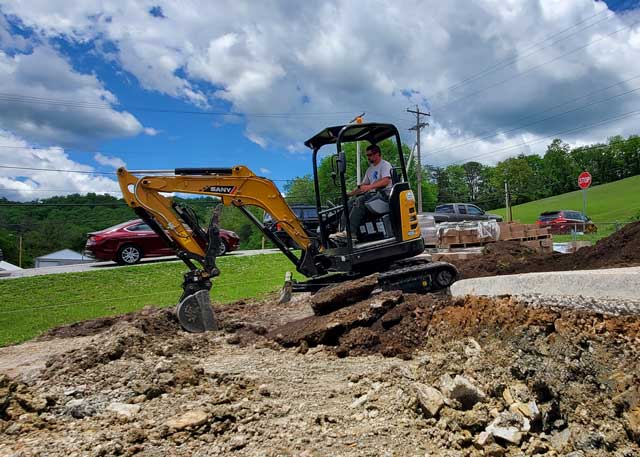Commercial Lancaster Trenching - Trenching Solutions for Businesses in Lancaster
Commercial Lancaster Trenching - Trenching Solutions for Businesses in Lancaster
Blog Article
Comprehensive Excavation Approaches: Mastering the Basics for Success
The cautious planning, exact implementation, and thorough interest to information needed in excavation tasks demand a comprehensive approach that includes numerous essential elements. The true mastery lies not just in comprehending these fundamentals but in perfectly incorporating them to browse the complexities of excavation tasks with finesse.
Comprehending Excavation Task Preparation

The preliminary phase of any type of excavation task is the planning phase, where critical decisions are made that can substantially impact the outcome of the task. Understanding the project budget, timeline, and range restraints is essential for developing an extensive excavation strategy that guarantees the task's success.
One secret aspect of excavation project planning is the development of a comprehensive timeline that lays out the sequence of target dates, tasks, and turning points. This timeline functions as a roadmap for the project team, enabling them to track progression and make needed modifications to make sure the task remains on schedule. In addition, a well-defined spending plan that makes up all costs, consisting of tools service, labor prices, and products, is necessary for staying clear of expense overruns and hold-ups. By very carefully taking into consideration all these factors during the drawing board, excavation jobs can be implemented effectively and efficiently, resulting in effective results.
Soil Analysis and Website Analysis
Performing complete soil analysis and website analysis is a critical step in the preparation phase of any kind of excavation task. Dirt evaluation involves establishing the make-up, structure, and residential or commercial properties of the dirt at the excavation website. This info is critical for recognizing the dirt's bearing capability, dampness web content, and potential for erosion, which are key variables in identifying the excavation methods and devices needed for the job.
Website examination exceeds dirt evaluation and incorporates a broader evaluation of the general website problems. This assessment includes recognizing any type of potential threats, such as below ground utilities, ecological concerns, or unpredictable surface, that could affect the excavation process. By thoroughly assessing the website, task managers can develop efficient excavation strategies that prioritize safety and security, effectiveness, and environmental security.
Using advanced modern technologies like ground-penetrating radar, dirt tasting, and drone studies can improve the precision and effectiveness of dirt evaluation and website evaluation. Investing time and resources in these preliminary actions can ultimately save time and prevent expensive hold-ups or problems during the excavation process.
Equipment Selection and Use
Efficient excavation tasks depend greatly on strategic devices choice and usage to make sure optimal efficiency and productivity. Picking the best devices for the task is essential in optimizing efficiency and minimizing downtime. Aspects such as the sort of soil, depth of excavation, and task scope play a significant role in figuring out one of the most suitable tools for the job handy.

In addition to choosing the ideal devices, proper usage is crucial to project success. Operators has to be trained to take care of the tools safely and successfully - dump truck companies in ohio. Routine maintenance checks and timely fixings assist prevent breakdowns and make certain constant efficiency throughout the job
Precaution and Regulations Conformity
In the world of excavation tasks, focusing on security actions and compliance with regulations is critical to guaranteeing a secure and lawfully audio operational setting. Precaution include a variety of methods, consisting of carrying out detailed site evaluations, executing proper signs and barriers, and giving ample security training for all employees associated with the excavation procedure. Adherence to guidelines, such as OSHA demands in the United States, makes sure that the excavation task satisfies the essential standards to secure employees, bystanders, and the surrounding environment.

Monitoring Progression and Adjusting Strategies
How can forecast supervisors effectively track the innovation of excavation tasks and adjust their techniques appropriately to maximize end results? Surveillance progression is important for guaranteeing that excavation tasks remain on track and meet target dates. Project supervisors can utilize different tools and strategies to track progression, such as daily report card, routine site inspections, and progressed surveillance innovations like drones and GPS tracking systems. By continually keeping an eye on the project's improvement, managers can identify any kind of prospective delays or issues early and take proactive measures to address them.

Conclusion
In final thought, grasping the principles of thorough excavation methods is essential for the success of any task. By recognizing job preparation, examining dirt and site conditions, choosing ideal equipment, following security policies, and keeping track of development, task supervisors can ensure a efficient and smooth excavation process. Implementing these approaches will certainly lead to effective outcomes and minimize prospective risks or setbacks throughout the excavation job.
The first phase of any type of excavation task is the preparation stage, where important decisions are made that can significantly influence the outcome of the project. Comprehending the project scope, budget, and timeline restrictions is vital for producing a thorough excavation plan that makes sure the task's success.
How can forecast supervisors effectively track the improvement of excavation tasks and adjust their methods accordingly to enhance outcomes? By carefully monitoring progression and being willing to adapt approaches, task managers can boost the overall success of excavation tasks.
By understanding job planning, analyzing soil and site conditions, picking appropriate tools, complying with security guidelines, and checking development, job managers can make certain a effective and smooth excavation process.
Report this page